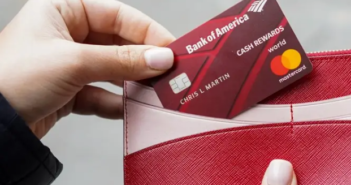Compare these business credit cards from our partners to find the right credit card for your business. Nav users get access to the largest selection of business credit cards so you can confidently compare your options and apply immediately.
See here: Best Conference Call services for Small Business
Compare the best business credit cards offers:
| Purchase APR | Annual Fee | |
| American Express Blue Business Cash™ Card | 0% on purchases for 12 months from date of account opening; then 13.99% – 21.99% Variable | $0 |
| CitiBusiness® / AAdvantage® Platinum Select® Mastercard® | 16.74% – 25.74% (Variable) | $99, waived for first 12 months |
| The Blue Business® Plus Credit Card from American Express | 0% on purchases for 12 months from date of account opening; then 13.99% – 21.99% Variable | $0 |
| Divvy Smart Credit Card for Business | All charges made on this charge card are due and payable when you receive your periodic statement | $0 |
| $0 | ||
| American Express® Business Gold Card | 14.99% – 22.99% Variable | $295 |
Choosing the right business credit card isn’t so different from picking the right personal credit card. However, business owners need to thoroughly research their options to understand exactly how this financial tool can be used to help their business and to make sure it doesn’t backfire on their personal finances. In the 2019 Federal Reserve Small Business Credit Survey, the majority of business owners in the U.S. — regardless of size — used their own personal credit to access capital for their business. “Whether you’re a new business or an established one, business credit cards are a vital tool for funding your business,” says Nav’s Ty Kiisel, business credit and financing expert and Nav’s Content Director.
Portable, flexible, and leveraging a tool most business owners have established already (a personal credit score), business credit cards are a must-have for business owners. But with dozens of options, how do you pick the right one for your business?
No single business credit card will be the best choice for all business owners across the board. Just like the business financing options available to your business, the best credit card for your business will depend on the benefits crucial to your business, what you are likely to qualify for based on your income and personal credit score, and how much cost you’re willing to incur to access capital. In this in-depth guide, we’ll cover all of the essentials to choosing the right business credit card for your business, with insights and advice from our unbiased business and credit experts.

Business Credit Cards vs. Personal Credit Cards
A business credit card and personal credit card operate in many similar ways. Both can offer bonus points, rewards points, introductory APR offers and a sign-up bonus, but there are a few distinct differences between how they’re regulated. That means there can be different terms and conditions for business cards and personal cards, and a savvy credit card shopper needs to understand those differences before they apply. First, let’s review how business and personal credit cards are similar.
1. The way they’re used.
Whether it’s a chip and PIN or a swipe, business and personal credit cards can be used for purchases online and in stores in the exact same way personal credit cards are. The fundamentals still remain the same and they include the same security features as personal cards like CVV/security codes, expiration dates, signatures, etc.
2. They rely on a personal guarantee.
Nearly every major business credit card relies on a personal guarantee (PG) from the applicant. A personal guarantee means that if you default on the credit card or make late payments, the issuer can try to collect from the cardholder, and not just the business. That can even mean suing the cardholder personally to get a judgment.
There are exceptions, though:Brex doesn’t require a PG, for example.
3. Personal credit scores are key to getting approved.
While a business credit card is for business purposes, a personal credit score is still a key qualifying factor across nearly every major business credit card. For business owners with great credit, this is awesome news — you don’t have to worry about establishing a business credit score, submitting business tax returns or financial statements, or getting someone to believe in the vision of your business as you’d need to do for other business financing options.
A great credit score helps power approvals and opens up a plethora of options for the applicant to choose from. However, if you have a bad personal credit score or not enough data to produce a credit score — a major problem for the small business community, as Nav noted in its study a few years ago on credit ghosts — it can prove extremely problematic. Since businesses are already viewed as riskier borrowers from the lender’s perspective, credit requirements for business credit cards are sometimes even tighter than the personal credit card realm. There are just a handful of options from the major business credit card issuers for business owners with bad or no credit.
Note there are exceptions:Divvy may be able to approve an application based on business credit, not personal credit, and Brex does not require a personal credit check.

Next, let’s cover the major differences between personal and business credit cards.
1. Which credit bureaus get your information.
When you apply for a personal credit card, your payment and account history is generally reported to at least one, if not all three major consumer credit bureaus — Experian, Equifax and TransUnion. But when you apply for a business credit card, the issuer may not report to any of the consumer credit bureaus except in the case of default or late payment. Each issuer has its own policy in terms of whether it will report positive payment history or just negative information to consumer credit bureaus. A few don’t report to personal credit at all.
This means shopping the issuer is just as important as shopping the card. If you have bad credit or limited credit history and are making on-time payments and not maxing out the card on a regular basis, having a business credit card report to the personal credit bureaus can be fantastic news — the card may help create a positive account on your personal credit and build your credit scores if used responsibly. However, if you don’t need a positive account on your personal credit history and/or plan to max out the card regularly (business owners often put larger spending balances on their credit cards, as a Nav study found), you may want to opt for an issuer that only reports if you pay late or default on the card. This way, you can take advantage of the new credit line for business purposes, but not have to worry about the credit utilization impact.
The consumer credit bureaus aren’t the only ones you need to consider when selecting a business credit card, though. Business credit card issuers can also report your payment and account history to major business credit bureaus such as Experian or Equifax.
Pro Tip:Some card issuers also report to the Small Business Financial Exchange (SBFE) and that information is then available on reports sold by various business credit agencies.
Each issuer has its own policy on which business credit bureaus to which it reports your payments and account history (you can see an issuer-by-issuer policy guide here). The key takeaway here though is that a business credit card is often the first business financing option new businesses access and it can be a quick way to begin establishing credit with the major business credit bureaus if you choose a card that reports to all three bureaus. Establishing business credit early can help you access better net terms with vendors and suppliers, and opens up larger-dollar, lower-rate and longer-term business loans down the road. If you’re going to open a new business credit card to help fund your business or make daily purchases, you might as well choose one that may help you build business credit in the process. It’s never too early to start planning for a successful business and how you’ll take it to the next level.
2. The terms & fees.
Federal regulations for consumer credit cards are quite different from those for business credit cards. Business credit cards aren’t covered by the Credit CARD Act, the federal law that protects cardholders from double-cycle billing, rate increases at any time and for any reason, and floating due dates, among other “gotchas.” By and large, the major business credit card issuers have self-regulated and implemented some or all of the same policies on rates and fees. But protections vary by issuer, so make sure you read your cardholder agreement carefully.
3. How the debt can be collected.
Third-party debt collectors collecting personal debts must follow the federal Fair Debt Collection Practices Act (FDCPA). That law offers a variety of protections including specific requirements to notify individuals about the debt, preventing debt collectors from discussing the debt with people other than the debtor, and the right for the debtor to request validation of the debt. Business credit cards don’t fall under the FDCPA and therefore debt collectors may be much more aggressive when collecting small business debts. (It’s worth noting the FDCPA does not apply to card issuers collecting their own debts, including personal credit card debt. But states may have laws that apply to those consumer debts.)

How a Business Credit Card May Help Build Business Credit
Whenever anyone applies for a credit card, there’s always a key question they ask — how will it impact my credit? That question is doubly complicated when it comes to business credit cards, as business credit cards can impact both your personal and business credit scores.You can read our article here on which credit card issuers report to the consumer credit bureaus, and how that reporting can impact your personal credit scores.
Major business credit bureaus include Dun & Bradstreet, Experian and Equifax. The Small Business Financial Exchange, though it doesn’t designate itself as a commercial credit bureau, shares business financial account information with a number of business credit bureaus, and so often your business credit card account data is shared with the SBFE, which then shares it with its Certified Vendors who can include it in business credit reports they sell.
Getting a card from credit card issuers that report may help ensure you’re building a strong business credit profile with all major bureaus. However, it also means that if you default, pay late or have other negative information on the card account, it can have a negative impact on your business credit score. Below are some quick tips that may help you build strong business credit with your business credit card.
Pick a card that reports to business credit bureaus
While it seems obvious, selecting a card that may help you build business credit means choosing one that reports to business credit bureaus. This is crucial to the real goal of building business credit — being able to leverage it down the road to establish better vendor/supplier relationships, better net terms and access larger-dollar, longer-term and lower-rate financing options like traditional bank loans and SBA loans. When considering business credit scores, a lender doesn’t have to disclose the bureau that they’re using in the lending decision.
Make your payments on time.
Just like your personal credit scores, payment history is a huge component of your business credit scores. Missing payments or making late payments consistently will help you establish a business credit score, but it likely won’t be a good one. Consistent on-time payments are crucial to building a positive business credit profile that you can leverage when the time is right.
Monitor your business credit scores for red flags/errors.
Just because an issuer reports your account to the major credit bureaus doesn’t mean that they won’t make mistakes or clerical errors. If you’re building business credit, keeping an eye on the accounts that appear on your reports and scores is vital. A “set it and forget it” policy isn’t ideal as you never know when a potential partner, lender, or investor can pull your business credit report — that’s right, unlike personal credit, there is no permissible purpose required to purchase or access your business’s credit report. There are often fees, but any private individual can pull your business’s report at any time. You can monitor and manage your business credit scores with major commercial credit bureaus with a free Nav account, which includes alerts so you can monitor your credit as you build your scores.

What to Look for When Comparing Business Credit Cards
Choosing a business credit card can feel overwhelming but ultimately the decision boils down to what’s right for your business and its goals. The main factors you’ll want to evaluate are:
- Costs: What does the card cost and how does that impact what you’ll pay?
- Rewards: If your goal is rewards you’ll want to make sure you make sure you maximize the right types of rewards.
- Features and benefits: These can range from flexible spending limits, to controls on employee accounts, to expense management tools.
Let’s dive into these into more detail:

How to Choose the Right Credit Card For Your Business
As we’ve mentioned, you need to focus on the costs, rewards and features that are most relevant to your business. Take time to think this through, and review the cards you carry annually.
Costs
If you know you will carry a balance from time to time, finding a card with a low interest rate— perhaps even a 0% introductory rate offer for purchases and/or balance transfers— will be paramount to keeping interest charges down. Most credit cards carry a variable APR that will change as interest rates in the economy change. And most will base your interest rate, at least in part, on your credit scores and other qualifications; the better your credit, the more likely you will be offered a low-rate card.
If, on the other hand, you will pay the balance in full each month, you may be most focused on maximizing the rewards you earn. In that case, you’ll weigh the cost of the annual fee against the rewards you’ll accrue. Keep in mind that some cards waive the annual fee the first year to get you in the door; make sure the ongoing cost is net positive.
If you travel overseas, or regularly make purchases from companies based outside the U.S., you’ll also want to look for a card that does not charge foreign transaction fees.
Rewards
Take time to think through which rewards are most valuable to you and your business. For some, that will be travel points and other travel-related benefits such as free checked bags, airport lounge access or bonus miles. If you’re loyal to a particular brand (Delta or American Airlines, or Hilton or Marriott hotels, for example) a co-branded card will help you maximize those benefits. But if you are flexible and book travel based on cost or convenience, then a more general purpose card such as Chase Ultimate Rewards may be a better pick.
If you’re unsure, you can always choose a card with cash back rewards. You’ll earn cash back that you can use as you choose. Even then you will need to have a good handle on the types of purchases you plan to put on the card because some cards will offer higher cash back rewards for bonus categories, such as purchases at office supply stores or fuel. For some cards, bonus categories may rotate. These higher cash back rewards may work for some entrepreneurs; for others, it will be too much work and they’ll stick with…
Features and benefits
More and more business cards are making it easier for cardholders to track and categorize spending. Some take it a step further with integrated expense reporting. If you will give cards to employees, you’ll likely want to have spending controls so you can minimize unauthorized or fraudulent purchases by employees.

How to Apply for a Small Business Credit Card
The process of applying for a small business credit card is very similar to that of applying for a personal credit card. Often that means applying online. You’ll provide information about yourself and your business, and a decision can typically be made almost instantly.
It is a good idea (though not always required) to have an Employer Identification Number (EIN) before you apply. It may also be a good idea to make sure your business has a D-U-N-S number from Dun & Bradstreet before you apply. As part of the CDD regulation to prevent money laundering and other types of fraud, the applicant for the business credit card isn’t the only one who needs to provide information on the application. If you have any business partners who own more than 25% of the business or are a beneficial owner (such as Senior Manager, General Partner, Owner, Chief Executive, President/Chairperson, Treasurer, or Vice President) , they will likely need to provide personal information to make sure they are actual persons and not on a government watch list. (They will not necessarily be subjected to a credit check however.)
Pro Tip:Set up a free Nav account to access MatchFactor, our proprietary algorithm that ranks and sorts all of the credit cards in our marketplace to help you find cards you’re more likely to qualify for, based on your business and credit profile. Nav customers who used MatchFactor were 3.54x more likely to get approved for a business credit card.
Now, on to the top business credit card selections!

The Best Credit Cards For Startups
Not all business credit cards are created equal and startups have some very unique needs that a business credit card can help solve. Whether you’re a sole prop startup or have already incorporated or formed a partnership, there are business credit cards that can help you access a line of credit quickly while leveraging your personal credit.
A few key considerations startups should make when choosing a business credit card:
- How much working capital do you need?
- If you’re in a partnership or have a co-founder, whose name will be on the application?
- Who will need access to the card?
- How will it impact your personal and business credit scores?
Here’s Nav’s pick for the best credit card for startups:
Capital on Tap Business Credit Card
With no time in business requirement, and credit limits ranging from $1,000 up to $50,000, the Capital on Tap Business Credit Card can be a great business credit card for startups. Business owners with fair credit may qualify, and applying will place only a soft inquiry on your personal credit file. Like most small business credit cards, a personal guarantee is required.


